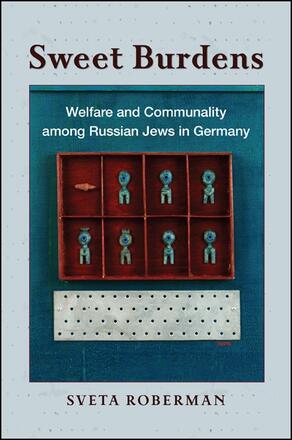
Sweet Burdens
Welfare and Communality among Russian Jews in Germany
Alternative formats available from:
Examines the lives of recent Russian-Jewish immigrants in Germany.
Description
Sweet Burdens presents a detailed ethnographic study of the lives of Russian-Jewish immigrants in Germany over the past twenty years. Focusing on the first generation of adult immigrants, Sveta Roberman examines how they question and negotiate their moral economy and civic culture vis-à-vis the host German state and society, on the one hand, and the Holocaust past, on the other. She approaches the immigrant-host encounter as one of many cycles of social exchanges taking place in multiple and diverse arenas. The book sheds light on a number of issues, including the moral economy of Jewish-German relations, immigrants' performances of civics and citizenship, modes of inclusion and exclusion, consumption and consumerism, work and the phenomena of unemployment and underemployment, the concept of community, and the dynamics and difficulties of reinventing Jewish identity and tradition.
Sveta Roberman>a research fellow at the Research Institute for Innovation in Education at the Hebrew University of Jerusalem and also a lecturer at the Gordon College of Education in Haifa.
Reviews
"The contribution of Sweet Burdens lies in its engagement with theories of high- or post-modernity, particularly as they interlace with the trope of the consumer-citizen and with critical anthropological analyses of late Soviet culture. The book is bound to attract readers who are students and scholars of post-Soviet Jewish migration and contemporary Germany society, particularly for its analytical frame and ethnographic descriptions." — Anthropology of East Europe Review
"...a valuable addition to the scholarship on post-soviet immigration to the west and an insightful ethnographic study of post-soviet subjectivity." — Slavic Review
"…[a] beautifully written book." — Russian Review